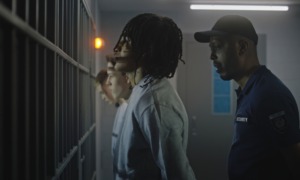***We already posted a piece today on Rep. John Kline and reauthorization of the Juvenile Justice and Delinquency Prevention Act. The other JJ legislation that could be affected by the shift of power in the House of Representatives is the Youth Prison Reduction through Opportunities, Mentoring, Intervention, Support, and Education Act (PROMISE Act), which was authored by Rep. Bobby Scott (D-Va.) and funds community plans to reduce and prevent juvenile crime.
Scott relentlessly promoted the act during the 111th Congress this year, and used his position as chair of the House Judiciary subcommittee on crime, terrorism and homeland security to host a slew of hearings on juvenile justice and youth development.
The Beltway scuttlebutt this summer was that Scott got close to reaching a compromise with fellow Democrat Sen. Dianne Feinstein (Calif.) that could have moved the act through both chambers of Congress. Feinstein has for years pushed a crime prevention bill in the Senate, and Scott’s bill would have been put into a conference committee with Feinstein’s bill if the two were passed by the respective chambers. In 2009, Scott would have none of it, because Feinstein’s measure funded mostly law enforcement strategies instead of community programs.
Scott was just elected for a 10th term representing Virginia’s third district, but after the new Republican leadership takes control of the House in January, he won’t be setting the agenda on the subcommittee. Scott introduced the bill in 2009 with Republican colleague Mike Castle (Del.), who lost in a primary this year to Tea Party-backed candidate Christine O’Donnell. The PROMISE Act passed through committee with 17 yays and 14 nays.
The bill has 235 co-sponsors, according to the Library of Congress website. Only one of those co-sponsors, Scott’s Virginia colleague, Rep. Randy Forbes, is a Republican on the Judiciary Committee.
***Click here for Ted Gest’s great rundown in The Crime Report about some other justice implications stemming from the changing of the guard on the House side. Gest speculates that funding under the Second Chance Act and Community Oriented Policing Services will get serious scrutiny from the Republican-led House.
***The U.S. Supreme Court will hear two cases next term related to law enforcement in schools, particularly with regard to questioning youths on school grounds. Education Week blogger Mark Walsh did an excellent job breaking down both cases: one in which a young Oregon girl was questioned at school about alleged sexual abuse in the home, and one in which a 13-year-old North Carolina boy was interrogated at school without being issued a Miranda warning about his rights to remain silent or request an attorney.
The North Carolina teen (listed as J.D.B. in the case) confessed to a string of neighborhood burglaries when police and school administrators questioned him at school, without advising him of his rights or calling his parents. That was in 2005; since then, the North Carolina courts have rejected J.D.B.’s appeals.
The court decision will come down to whether or not a youth interrogated at his school is considered to be in custody. If he is, then he’s entitled to a Miranda warning. If not, then J.D.B.’s admission is kosher.
His lawyer’s argued to the North Carolina Supreme Court that, even if the average questioned student is not in custody, a young teen who is a special education student should be considered as such. The court, in a 4-3 ruling, was not persuaded.
Youth Today’s trusty intern, Kristin Drouin, ran down a few court cases from 1997 involving interrogation in the schools:
– Idaho: A 10-year-old boy confessed to his school resource officer (SRO) that he had touched his sister in a sexual manner. The officer told the boy he was not going to arrest him and did not read him his rights. Later, the boy was arrested, and the Idaho Court of Appeals ruled that the boy’s discussion with the SRO must be suppressed.
– Rhode Island: A teen confessed to his high school principal that he was involved in beating up another student. Later, the principal provided information about that confession to police. The teen argued that he should been read his rights if the principal was acting as an agent for the police. The court denied his appeal, in part because the police had not asked the principal to question the teen.
– Here’s a macro-view of the issue, with references to a number of cases, by Texas Wesleyan law professor Meg Penrose.
***A few good links and reads:
– The Coalition for Juvenile Justice held a conference on Disproportionate Minority Contact in late October, and has posted all of the materials from the conference here.
– Cool link here from Global Youth Justice on the history of youth courts.
– The plan for reform at Los Angeles County’s largest juvenile facility is in place, reports Christina Hoag of the Associated Press.






























